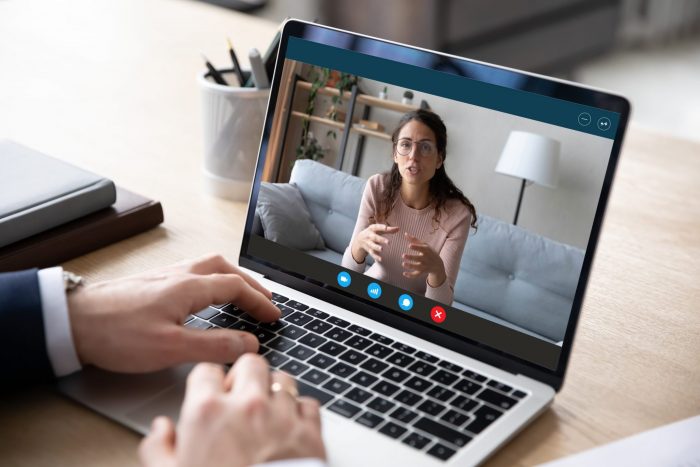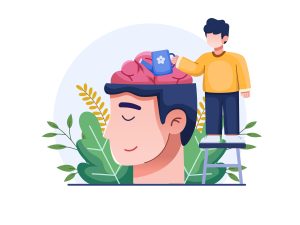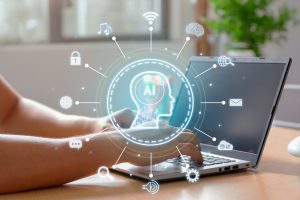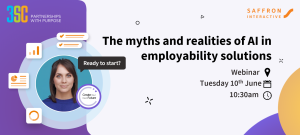Coaching has been proven as an effective means of accelerating skills development, but organisations are still spending £6.6 billion per year trying to plug workforce skills gaps. So how can we replicate and scale the impact of targeted coaching styles in order to plug those gaps and accelerate skills acquisition?
If you missed it, in part one of our blog series we explored the current landscape of corporate coaching, establishing that it is possible to deliver the level of personalisation needed for effective coaching using AI and digital technology.
However, only 9% of organisations currently use any AI-based tool to enhance their coaching efforts. But with more than a quarter (27%) stating that they intend to adopt digitally enabled coaching support in the next two years, is it possible to replicate the many different approaches that traditional workplace coaching can offer?
Which is the question we’ll be addressing in this part of our deep dive – by taking a closer look at different coaching styles.
The ‘Goldilocks’ Approach
We know digital can achieve scale, but can it deliver the targeted, adaptable and ‘just right’ support that is able to truly accelerate skills acquisition and meet the needs of the organisation and the coachee? In order to find out, let’s consider four key coaching styles often used in traditional coaching interventions and how digital can extend and enhance their effectiveness.
- Directive coaching: where a coach (often a manager) with a breadth of experience coaches a newer employee on what to do.
While they may not have lived it, digital coaches can also have a wealth of experience built into them. Indeed, an advantage of digital is that the coach can encompass a full range of experience, where a live coach may have gaps. One of the clients we are working with expressed this as “digitising our very best – our ideal coach”.
The digital coach’s knowledge can even be shaped by a history of “lived” experiences and distinct personality traits much like any interaction with a human coach or manager would. This was something we were able to do for our own digital coaches in our recent project, Create Your Own Future, where we created four distinct personalities each with their own relatable “back story” in order to appeal to a specific learner cohort. For more insight into Create Your Own Future and making your employees more career adaptable click here.
- Laissez-faire coaching: which in short, can be described as “leaving employees to do their work”.
This style of coaching is reminiscent of existing digital point-of-need tools with incorporated AI or even chatbots: the individual is left to get on with their work but there is assistance when needed. Just as with a live coach, the individual can ask for help, but AI can go one step further. Digital platforms can be built to identify patterns, behaviours and sentiment which indicate a user may be confused or performing a task ineffectively, the AI coach is then able to offer immediate guidance as well as the opportunity to discuss a user’s concern further.
In turn, there is the broader ability to provide targeted responses (including pointing towards resources, further learning or human support) that direct questions from users. Learner responses – including potential ‘at-risk’ indicators – can be flagged within the internal data recording capabilities for digital platforms, providing opportunity for streamlining and further targeting support sessions in key areas of concern with line managers.
- Non-Directive coaching: a style which utilises non-judgemental and active listening to best draw out insight, creativity, and wisdom in others.
As people, it can be difficult to withhold judgement and practice active listening effectively when speaking with a coachee. Digital coaches however, if built with enough intuition, are even better placed for a non-directive coaching style, as they lack the emotional preconceptions that we, as people, invariably have. The user can use their digital coach as a sounding board, to practice effective self-reflection, an important skill for personal improvement.
- Situational coaching: a combination of directive and non-directive coaching, this style requires the coach to regularly assess and alternate between styles.
This is well within the capacity of many digital coaches as technology has become increasingly intuitive. It is not unbelievable that a digital coach could be taught to recognise patterns and behaviours or understand a user’s self-assessment in order to employ the best coaching style.
An achievable goal?
Demand for coaching in the workplace is growing rapidly year on year, leading the International Coaching Federation (ICF) to predict that by 2022 the market size of the coaching industry in the U.S. alone will be worth $20 billion dollars. A $5 billion dollar increase in under three years!
The ICF has attributed this massive market size growth to one factor – changing global perceptions of coaching. For a long time, coaching was perceived as a luxury available only to senior management. Now, businesses have begun to recognise the value coaching has for all employees and therefore for an organisation overall.
As the demand to provide coaching for all stakeholders in an organisation increases, digital coaching will be able to step in to meet this demand by providing a scalable service that can provide a personalised, humanised, intuitive, and effective experience for both users and employers.








